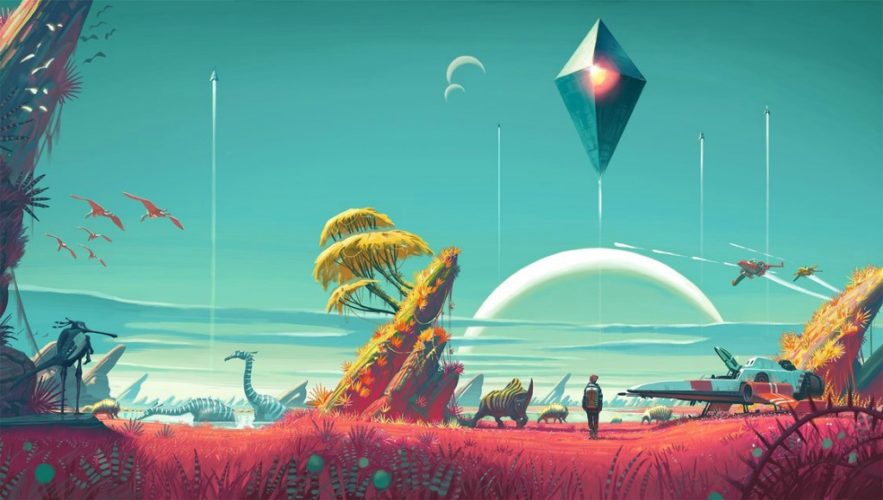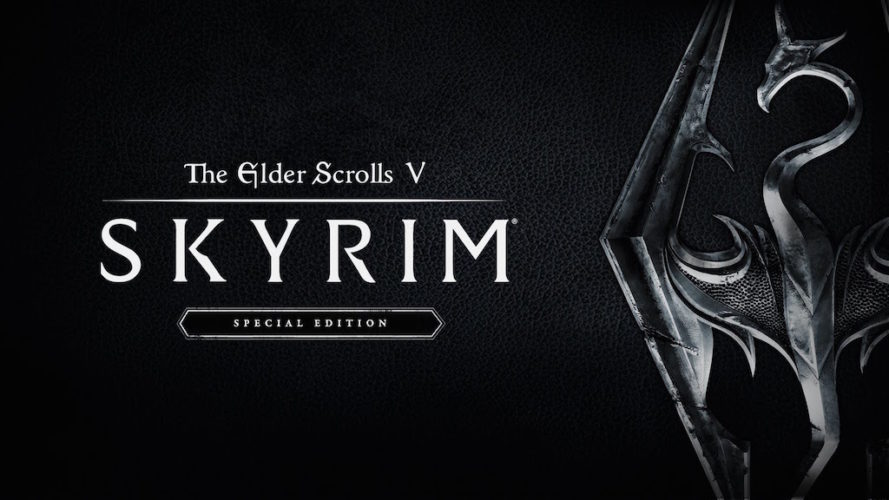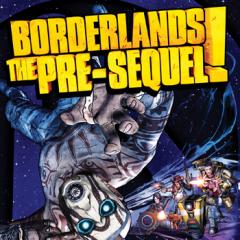Mainstream
5 Reasons Why Western-Developed Games Are Boring (and How to Fix Them)

I have a GameFly account. It has served me well. It has allowed me to spend less than the price of a single AAA retail release per month to play as much as I want of practically whatever I want. And what I want usually ends up being the first four or five hours of several much larger fourteen-hour or even forty-hour experiences. That sounds like it should be a comfortable sample platter of the industry, an ADD fantasy of constantly-shifting and continually-expanding experiences. So why instead does it feel like being strung up and force fed the same meal for months or even years on end? Well, as you might have guessed from the title, I have some thoughts on that.
1. The Vertical Slice Has Got to Go
If you’re not familiar with the term, the “vertical slice” is a method taken from product design. It’s a way of avoiding what’s known as “feature creep”, the unfortunate tendency of people who are equal parts creative and bored to keep tossing new ideas at the wall instead of spending time developing the ideas that they’ve already got. Because in pretty much every case, thinking up the nifty stuff you could invent is much more entertaining than actually doing the very strenuous and dull work of inventing things.
 “Maybe I should take dad’s advice and get into grain counting. It can’t be more boring than coding.”
“Maybe I should take dad’s advice and get into grain counting. It can’t be more boring than coding.”
So, in order to keep their people on track, managers demand at the outset of a project that they have a list of the exact things which their nifty new gadget will be able to do. And progress is tracked by the gadget’s ability to perform these essential functions and, inevitably, its inability to do anything else at all.
Which is all well and fine in, say, packaged goods (where most of the suits working at western publishers now come from) but is absolutely death in art.
And you can see that right away in the amount of games which show you the entirety of themselves in their tutorials and then demand that you play through another twelve or so hours of the same repetitive actions, which are made all the more repetitive by the fact that they’ve been modeled after some other and much more popular game from five years ago that everyone has been copying since then. If you’ve been gaming at all in the past ten years, I can hand you an Xbox controller and you’ll likely be able to tell me exactly which button shoots, which button zooms down the scope and which button lobs your (yawn) exactly three or five grenades. Never four grenades, mind you. That’s the devil’s number.
By the way, how many grunts in the field are actually allowed to handle grenades? I’m really curious about that.
Regardless, if you want a great example of how terrible this is, look no further than open-world gaming. Look at all of the unnecessary collectables used for padding, the copy-paste level design, the “crafting” systems which are typically just another little dance with the bland U.I. to do the same exact thing you could have done by simply picking up an object in the world because there’s zero freedom or options to be had there.
Look and behold the terror of a ledger with boxes being mechanically checked. And if you want a vision of the future, imagine a forced stealth section stomping on a human face forever.
2. Intuitive Controls are Inherently a Bad Idea
Okay, hear me out on this one: I hate intuitive controls. I absolutely loathe being able to pick up a controller and immediately knowing what each button does. Every time that I do, I can feel another knife being stabbed into the heart of gaming.
I have strong emotions on this is what I am saying here.
 “Shouting counts as an emotion!”
“Shouting counts as an emotion!”
The really beautiful thing about video games as an artistic medium is that they’re the only one that demands something of the person engaging with them. Film is a passive experience. Reading is technically more active but once you’re literate it’s basically automatic. Paintings hang on walls and look pretty, which is very nice of them but maybe isn’t so indicative of a growth experience.
Only gaming really makes you work for the next bit of story or emotion or what-have-you. And maybe it’s something as simple as muscle memory. Maybe the characters and the plot and all of the more traditional stuff aren’t perfectly blended into the more interactive bits and so you get lots of odd stuff like health packs and quicktime events and all of the other tropes that are sort of laughable from any given distance besides right in the heat of the moment. But there’s still a magic there that’s particular to this medium.
And when you try to flatten those experiences and make them rote and predictable so that you can try to engage with non-gamers, especially the people who will never play your product in a million years anyways, then you dilute that magic.
And then all you’ve got is a whole lot of misspelled, one-word title games like “Phayze” and “FaylState” and “Fallohcentryke” that all play the same and feature what I believe to be the exact same burly, white man on the cover looking vaguely militaristic and also annoyed at how close the photographer has gotten to his face. Are these all part of a series? Really, I can’t even tell anymore.
3. New IP is for New Ideas
You know what? I’m fine with all of the sequels in gaming. Because really, gaming doesn’t quite do sequels like other mediums do. Or at least it doesn’t do sequels like film does (look up the “alphabet mystery” series if you want some examples of ridiculous sequeling in literature) — or, I suppose film does sort of do long-form storytelling with multiple iterations at times (there’s always the “Up” series, of course) but it’s usually not in genre work? Except when it is?
Okay, okay, so the nature of sequels is a complicated beast wherever they’re done. And with series like “Assassin’s Creed” out there in which they’ve just gone ahead and given up their meta-story in favor of doing different historical epics with similar gameplay, it is perhaps more strange and convoluted than ever.
“What? You come up with a murder-y word that starts with a ‘q’!”
But we as a community spend a lot of time complaining about them regardless because quite a lot of them are seen as cheap and easy cash-ins. Even if the process by which they were made is most certainly neither. For my part, though, I’m more concerned with the glut of same-but-with-a-different-name rip-off titles that now make up the bulk of even AAA gaming. By now, we must have reached the point that there are more “Call of Duty” rip-offs than there are actual sequels. I mean, at least Activision has the kindness to only release one entry in the franchise a year.
Whereas practically every month sees at least two or three of pretty much that exact same game made by different and ultimately far less talented teams. Ones without the budget to topple the king and without the vision to stake a claim on their own territory somewhere else.
And what’s the point, really? Nobody ever says, “why buy the best when I could buy the rest at the exact same price and be woefully unfulfilled in life?”. Even the “Call of Duty” games didn’t hit upon mega-success until they quit aping “Medal of Honor” and started doing their own thing with the “Modern Warfare” titles.
Learn that lesson while you’re ripping off Activision, fly-by-night publishers.
4. Sometimes a Toy is Better than a Game
If anything, I’ve been arguing against convention here. And, sadly, there’s now nothing more conventional in gaming than handing the player an awesome tool and then forcing them to use it in one of several pre-arranged sequences.
Honestly, it would probably be easier just to avoid all of the extra work that goes into designing perfectly manufactured hallways with just the right enemy placement and instead toss us into big, open areas with lots of fun stuff to play around with and neat ways to play around with it. Why isn’t EA making its own Goat Simulator or Octodad?
 “We tried with koalas but as it turns out they’re basically awful.”
“We tried with koalas but as it turns out they’re basically awful.”
And if you think that’s crazy, then why did we throw so much time and money at Minecraft? Hell, QWOP probably has a better ROI based purely on advertising revenue than most mid-range shooter titles that were released on the PS3 and Xbox360.
Remember that this is how we play. So give us a real playground. Don’t be afraid to be aimless.
5. But if Not then Give me an Experience
Of course, if you’ve got a great story to tell then that’s fine but be sure to make it a journey. Not just a series of the same few encounters over and over again until you get to the next dramatic beat. The interactive portion of your big, artistic statement on life shouldn’t be a chore to get through.
Maybe the best recent example of how to go wrong with this is “The Last of Us”. Now, don’t get me wrong. I love this game. I love its environments, I love its sound design, I love its characters and the feel of its controls once you do eventually end up in combat.
But what I don’t love are the sectioned-off enemy encounters that make stealth pointless, the anemic crafting system, the tacked-on puzzle elements (look Ellie, another pallet for you to stand on!), or the generally uninspired and straight-forward level design. Once you’ve murdered everything in sight, humans and zombies alike, then you do get to wander around and look at all of the very carefully constructed environments which is a wonderful time all on its own. Some of the most endearing and even affecting moments in the game actually come from these joyous little moments of exploration.
But you don’t spend much time talking to people. You never come across any other survivors that aren’t bandits. You rarely interact with anyone in any way that isn’t just them trying to murder you. And it’s not that I have a problem with the violence, like a lot of contemporary reviewers seemed to. I love violence! The more stomach-churning the better!
“I shall bathe in the sweet entrails of my enemies!”
But when the best moments in the game are all, every single one of them, outside of the combat and yet the combat makes up ninety percent of the experience as a whole then, yeah, something is clearly wrong. Imagine a sequence in which you and Ellie wander into an abandoned building and scavenge for supplies and other people are also there, cautious but minding their own business. Imagine grabbing what you need but not saying a word to these people as you gradually fill up your pack and move along.
It’s the tension of not knowing how something’s going to turn out that makes that scenario interesting. Maybe they will just turn on you. Maybe they won’t. What if they also have guns? Will you shoot first and ask questions later?
Now imagine if that only happened once in the whole game. If other encounters worked in other ways, violent or not. See, it’s not about the bloodshed. It’s about the novelty. It’s about the difference between exploring a deliberately crafted world in which a group of creative people have touched every aspect and being pounded upside the head by a few core systems that can be iterated on ad nauseam because the latter just happens to be way cheaper and require a lot less effort.
If you’re going to make your epic then make it count. What distinguishes the great Hollywood epics, for example, is their bloat of spectacular stuff. They’re gloriously messy.
Think “Lord of the Rings”. It’s essentially a hero’s journey but we’re not there to see Frodo drop the ring into Mordor. We’re there for all of the fantastic lands and larger-than-life characters that we can meet along the way. If instead the series had been nine hours of Frodo smacking goblins upside the face with the same pre-rendered moves and hearing the same twelve to fifteen death gurgles then it would have been an abysmal slog.
Just because you’re building a game doesn’t mean you shouldn’t be building a world.
Or, hey, maybe just continue about your business while your business slowly dies around you. Meanwhile, I’ll be over here giving serious consideration to just cancelling my GameFly subscription.
Gaming News
Best Usenet Newsgroups for Gaming

Usenet newsgroups may seem old-fashioned to many. In reality, they are the perfect place for players who love the classics but are always open to new games and strategies. These internet communities are also ideal for those searching for gaming material, solutions to issues, or a conversation related to their favorite video games. Whether you are an experienced player or entering this domain for the first time, Usenet holds a ton of resources that could change how you interact with the gaming world.
Understanding Usenet Newsgroups
Usenet newsgroups, which include gaming groups, are like message boards. People can post messages and articles in different categories. Each group is a special place for certain topics – this makes it simple to find the subjects you want to read about most. The unique characteristic of Usenet lies in its decentralized structure. This permits a much more open interchange of details and information than what is seen on regular social media platforms or forums.
Initially, Usenet was utilized only for academic and professional exchanges. However, it soon turned into a prevalent method for communicating among hobbyists and gaming groups. Presently, even though Usenet has been surpassed by newer platforms in terms of popularity, it continues to be an important tool for knowledgeable users who value its special mix of staying anonymous with fast communication. Knowledgeable users also love access to vast archives containing historical information and software applications that are no longer available elsewhere on the Internet.
Top Usenet Newsgroups for Mobile Games
comp.mobile.games
This is a fresh group dedicated to discussions about mobile games and related technology matters within the industry. Here, you can find conversations about the coding aspects of creating games for mobile devices, like new updates in platforms or fresh game engines being used for development purposes.
rec.games.mobile
The perfect place for people who play games on their mobile devices as a hobby. Here, users talk about strategies, tricks and discuss game evaluations. This group is also suitable for those who are not serious gamers but like to connect with others and discuss playing strategies.
alt.games.mobile
In this newsgroup, users often discuss gaming fixes and give each other suggestions. It is also the go-to place for gamers and die-hard fans that wish to find each and every detail of the game they love to play.
Best Newsgroups for Video Game Discussions
Newsgroups such as alt.games.video and rec.games.video.arcade have lively communities where gamers often engage in exchanges and conversations. These forums are not only for resolving gaming issues or writing reviews; they are centers of enthusiastic discussion regarding gaming culture, strategy, and creation process. Be it the latest RPGs, energetic shooters or old-school arcade games – there is always a thread bustling with discussion.
In these threads, not only will you encounter a variety of views from across the globe, but you may also land on gaming tricks and shortcuts that are lesser known. For those who are new, remember that every group has its own tone and rules. Lurking for a while should help you understand community norms and ensure your contributions are accepted.
Specialized Gaming Newsgroups
Specialized newsgroups are designed for particular gaming communities. They provide a discussion environment that is more centered and focused. These groups are ideal for users who really love a particular game and want to explore it in great depth.
The benefit of these specific groups is their collection of very particular details. Gamers who are part of such a group often exchange unique things like custom mods or skins, and offer advice on how to make gameplay more efficient and fun.
Tips for Using Usenet Newsgroups for Gaming
To enter Usenet, you will first need to pick a provider that is well-known for security, high retention rates and fast speed. To make the right pick, it is a good idea to get the rankings for the best Usenet providers. Next, get advanced newsreader software, as this will allow you to browse through newsgroups easily and manage your activities effectively.
Focus on newsgroups related to gaming and participate in discussions matching your interests to find gaming buddies. Also, make sure that you follow the netiquette of each group while doing so. Utilize newsreader software functions like filters and automation to keep things simple.
Conclusion
Usenet, at first sight, can appear as a choice for oldies or people that have not yet acclimated to social media platforms and forums. However, its distinct characteristics make it very useful for all kinds of gamers. If you are searching for uncommon information, looking for detailed conversations or wish to join a community that matches with your specific interests; Usenet is surely the place for you. Jump in to see how Usenet can add another element of fun to your gaming experiences!
Casual
Encouraging Growth and Motivation: Resources for Child Development

Child development is a complex journey marked by critical milestones where each stride forward builds upon the foundation of the previous one. Acknowledging children’s individual needs, pediatric therapy services tailor strategies to foster physical, emotional, and cognitive growth. To support this transformative process, environments that prompt curiosity and engagement, coupled with advanced educational tools, play an instrumental role in shaping young minds. These resources, carefully selected and applied, can significantly amplify a child’s developmental trajectory. Keep reading to learn about the effective ways these tools and techniques can aid in advancing childhood milestones.
Pediatric Therapy Services: Enhancing Developmental Milestones
Pediatric therapy services support children as they reach and surpass developmental milestones. These services, often provided by skilled therapists, address various growth challenges, ensuring each child has the best possible start in life. From speech and occupational therapy to physical and behavioral interventions, these professionals tailor their approach to meet the unique needs of every young patient.
Therapists work relentlessly to motivate children, fostering an environment where milestones are not merely achieved but celebrated. Through personalized, one-on-one sessions, children gain the confidence and skills necessary to navigate their developmental journeys more easily. The trust between therapist and child is a solid foundation for consistent progress and paves the path for lifelong learning and adaptation.
Resource provision is a key component of pediatric therapy, equipping parents with the tools to continue therapy practices at home. Effective communication between therapists and families ensures a cohesive strategy that envelops the child’s daily routine, enhancing the therapy’s impact. It also allows parents to identify subtle progress, reinforcing their pivotal role in the child’s developmental success.
If you’re looking for pediatric therapy in your area, a simple Google search like “pediatric therapy Arizona” will help you find local providers and services tailored to your child’s needs, ensuring they receive the specialized care necessary for their development.
Optimizing Play Spaces: Creating Environments for Learning and Exploration
Optimized play spaces are vital platforms where children engage with their world, build skills, and unleash their creativity. Designers of such areas pay astute attention to elements that promote safe exploration and intellectual stimulation. A thoughtfully arranged play environment serves as a place of entertainment and a crucible for burgeoning development.
Professionals incorporate a variety of tactile and visual stimuli within play areas to cater to diverse developmental needs and interests. Stimulating sensory experiences is central to cognitive and motor skill refinement among younger populations. The intentional selection of colors, textures, and interactive features sparks curiosity and encourages physical activity, which is fundamental to healthy growth.
Accessibility remains paramount in creating play spaces, ensuring they cater to children across all abilities. Including adaptive resources within these environments demonstrates a commitment to inclusive development, allowing every child to participate and benefit from the joy and learning play offers. Such inclusiveness fosters a sense of community and belonging, which is essential for emotional and social development.
Affording children autonomy in their play advances self-directed learning and problem-solving capabilities. When children feel empowered to make choices within their play, they better understand their preferences and abilities, setting the stage for confidence and self-awareness — qualities that are instrumental as children grow and transition through life’s stages.
Additionally, incorporating elements like fake plants or outdoor plants from retailers like Nearly Natural outdoor plants into play spaces can enhance children’s sensory and aesthetic experience.
Interactive Learning Tools: Technology and Resources for Cognitive Development
Interactive learning tools harness technology’s power to solidify children’s cognitive development. These digital resources provide an array of engaging, educational content that aligns with critical thinking and problem-solving skills.
Software and applications designed for children’s learning capitalize on the allure of multimedia to capture young minds. Effective education solutions provide children with stimulating challenges that are age-appropriate and aligned with developmental targets.
The discerning use of educational technology in classrooms and homes can reinforce concepts and skills taught through traditional methods. It creates a harmonious blend of instruction and interactive play, thereby cementing a child’s understanding and retention of information.
Providers of such educational platforms are ever vigilant, updating content to reflect new educational strategies and the latest academic research. Thus, children equipped with these technological tools remain at the vanguard of current learning methodologies, all while engrossed in fun and dynamic ways.
Overall, caregivers and educators can provide comprehensive support for children’s developmental journeys by integrating pediatric therapy services, optimized play spaces, and interactive learning tools. These resources nurture their physical, emotional, and cognitive growth and cultivate a lifelong love for learning and exploration.
Features
Why Investing in Academics Is Investing in Yourself

The quest for knowledge and self-improvement through academic pursuits is more than just a milestone in life; it is a cornerstone of personal development and success. Committing resources to further education is not merely an expense; it is an investment with considerable returns that extend far beyond the classroom. Education equips us with the tools required to navigate an increasingly complex world, opening doors to opportunities and fostering personal growth. Keep reading to discover why allocating time and resources to your academics is a decision that pays dividends for a lifetime.
The Lifelong Returns of Investing in Your Education
Investing in education is akin to planting seeds that blossom into numerous opportunities. Beyond financial gains, education forms the bedrock for career success and personal fulfillment. It empowers individuals to pursue their passions, enhances job satisfaction, and boosts self-esteem through academic achievements. Education serves as a catalyst for social mobility, breaking cycles of poverty by equipping people with the skills needed to improve their lives and contribute positively to society.
This ripple effect extends to lower crime rates and increased civic engagement, benefiting communities at large. Beginning with scholarships for high school sophomores can provide the initial support needed to embark on this transformative journey. These opportunities signify a commitment to nurturing future leaders and fostering a culture of lifelong learning and achievement.
Personal Growth and Lifelong Learning Through Education
Education is a vital aspect of personal development, providing opportunities for growth, character building, and discovering passions and capabilities. It fosters resilience and adaptability, which are essential in all aspects of life. A strong educational foundation encourages lifelong learning, ensuring individuals remain relevant and proactive in their professional and personal lives.
Education also broadens perspectives, exposing individuals to diverse ideas, cultures, and worldviews, fostering empathy, cross-cultural understanding, and appreciation for the human experience. It also allows for critical assessment and engagement with the world from an informed standpoint. The journey through academia often involves self-discovery, helping students uncover their strengths, weaknesses, interests, and values, leading to a more fulfilled life with aligned choices and goals.
Expanding Your Horizons: The Social Benefits of Academics
Academic investment in education is about building social capital through interactions with peers, faculty, and industry professionals. These interactions foster communication skills and relationships, which are crucial for life stages. Extracurricular activities in academic settings provide platforms for students to express themselves, learn new skills, and take on leadership roles.
Collaborative projects and team-based assignments teach students the importance of teamwork, compromise, and collective pursuit of goals. Higher education institutions also serve as a microcosm of society, requiring social awareness and finesse to navigate the diverse cultural, economic, and ideological perspectives.
How Academic Achievement Propels Professional Success
Professional success often hinges on a blend of experiences and achievements, with academic accomplishments playing a crucial role. Excelling in academia fosters a strong work ethic and sharp time-management skills, highly valued in today’s job market. Employers frequently use academic credentials to gauge candidates, especially for specialized roles like those requiring an aa in paralegal studies, where in-depth knowledge is pivotal.
Moreover, higher education equips individuals with specialized knowledge and technical skills that are indispensable in complex roles. Critical thinking and problem-solving abilities, nurtured during academic pursuits, further enhance one’s capacity to tackle challenges creatively. The networks formed during academic years often open doors to valuable career opportunities through mentorships and connections.
Leveraging Educational Investments for Career Advancement Opportunities
Investing in education can significantly impact career advancement, as academic qualifications often lead to promotions, leadership roles, and exclusive professional circles. Continuous education can lead to specialized career paths with higher salaries and statuses, especially in evolving fields. Higher education institutions offer career services like resume-building workshops and job placement programs to help students transition from academia to the workforce effectively.
For those already in the workforce, further education can be a strategic move for career change or progression, with flexible online programs and part-time options allowing working professionals to pursue additional qualifications while maintaining their current positions.
Altogether, the investment in academics is a far-reaching decision that impacts not just your immediate circumstances, but your future potential. As you prioritize your academic pursuits, you build a stronger foundation for success in every aspect of life—professionally, personally, and socially.
-

 Guides5 years ago
Guides5 years ago6 Proven Ways to Get more Instagram Likes on your Business Account
-

 Mainstream10 years ago
Mainstream10 years agoBioWare: Mass Effect 4 to Benefit From Dropping Last-Gen, Will Not Share Template With Dragon Age: Inquisition
-

 Mainstream6 years ago
Mainstream6 years agoHow to Buy Property & Safe Houses in GTA 5 (Grand Theft Auto 5)
-

 Casual2 years ago
Casual2 years ago8 Ways to Fix Over-Extrusion and Under-Extrusion in 3D Printing
-

 Mainstream12 years ago
Mainstream12 years agoGuild Wars 2: The eSports Dream and the sPvP Tragedy
-

 Guides10 months ago
Guides10 months agoFree Fire vs PUBG: Comparing Graphics, Gameplay, and More
-

 iOS Games2 years ago
iOS Games2 years agoThe Best Basketball Games for IOS
-

 Gaming News1 year ago
Gaming News1 year agoSwiping, Tapping, and Tilting: How Mobile Games Are Played Today







